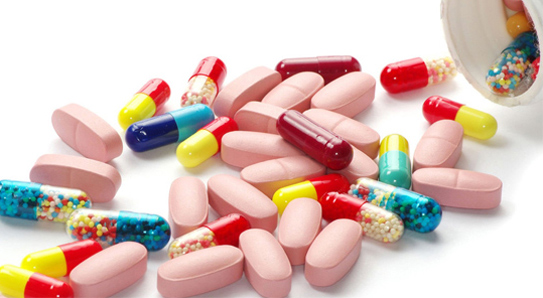Antibiotic abuse leads to disaster
Many people die from infections caused by resistant bacteria. The culprits include Escherichia Coli, Klebsiella Pneumoniae and Staphylococcus Aureus. Whenever antibiotics are used in excess or in bad conditions, bacteria can mutate and become difficult to eradicate. If nothing is done, there will be no recovery for ordinary infections - and low-risk surgical operations could become life-threatening.
 |
The resistance of bacteria to antibiotics has become a major health problem. Some people already imagine a disaster scenario. By 2050, these ‘super-bacteria’ could be responsible for 10 million deaths worldwide, as much as cancer today.
An overconsumption of antibiotics in farm animals creates resistant bacteria that can be transmitted through the food chain.
Antibiotics can be a necessary evil, especially if you use them to get rid of bacterial, parasitic or fungal infections. But if you think antibiotics fight all colds, flus, or other viruses, then you’re wrong!
For example, antibiotics do not work if you have a viral infection. In addition to not fighting the virus, taking antibiotics when you do not need them can develop resistance, which makes your body resistant to medication.
The 9 dangers of antibiotic abuse
Longer illnesses
Antibiotic resistance results from the abuse of antibiotics. This means that when you need these antibiotics, they may not work. Because germs become resistant to treatment, you may stay ill longer than normal.
More expensive healthcare
Because antibiotic treatments will no longer be enough to cure your disease if you are resistant, your bill will increase because of longer visits to the hospital and more expensive drugs.
Additional visits to doctors
The more antibiotics you use to treat colds, flus or other viral infections, the more they will become ineffective against the bacterial infections they are supposed to treat. For this reason, you will need to visit your doctor more often to treat your illness.
Higher risk of spreading diseases
When the human body becomes resistant to antibiotics, the bacteria become resistant to treatment. This means that when you are sick, you will be more likely to spread the disease to others, putting your family and colleagues at risk.
Unsafe alternative treatments
People who are resistant to antibiotics will often have to multiply the treatments before finding the one which will treat the disease. When first-line antibiotics are not effective, your doctor will need to prescribe less used drugs, some with damaging side effects.
Expensive tests, indirect health costs
The additional costs of antibiotic resistance can double or triple when the patient requires medical tests, treatment, hospitalization and absence from work due to inability to treat the disease properly.
Wrong medication
People who are resistant to antibiotics also tend to take their medications incorrectly. For example, they can take in excess or not enough if they start to feel better. Failure to complete the medication prescribed by the doctor may not kill the bacteria involved, and you will remain ill.
On the contrary, taking too much medicine can destroy the beneficial bacteria in the digestive system, causing other problems.
Abuse of dangerous drugs
You may think that it is a good idea to keep unused antibiotics and re-use them later or pass them on to friends or family, but without informed medical advice, you could endanger your health or that of another by taking inappropriate medication for that particular disease.
Risking your life and others
In rare cases, antibiotic resistance can cause severe health complications and death if patients resist treatment, especially in people with reduced immunity, such as the elderly , infants, or those who are very sick (i.e: cancer, AIDS) – Family Medical Practice Viet Nam
* Dr. Philippe Jean Collin is a French Paediatrician with Family Medical Practice Ha Noi. He is a member of the French Society of Paediatrics, American Society of Nephrologists, and the Paediatric Academy Societies.
For more advice on any medical topics, visit Family Medical Practice Ha Noi on 298 Kim Ma, Ba Dinh or call (024) 3843 0748. Email: hanoi@vietnammedicalpractice.com or check out www.vietnammedicalpractice.com
FMP’s downtown HCM City location is at Diamond Plaza, 34 Le Duan, District 1; Other facilities are at: 95 Thao Dien Street, District 2. Tel: (028) 38227848. E:hcmc@vietnammedicalpractice.com
FMP Danang is located at 96-98 Nguyen Văn Linh Street, Hai Chau District, Da Nang. Tel: (0236) 3582 699. E: danang@vietnammedicalpractice.com.
(Source: VNS/By Dr. Philippe Jean Collin)